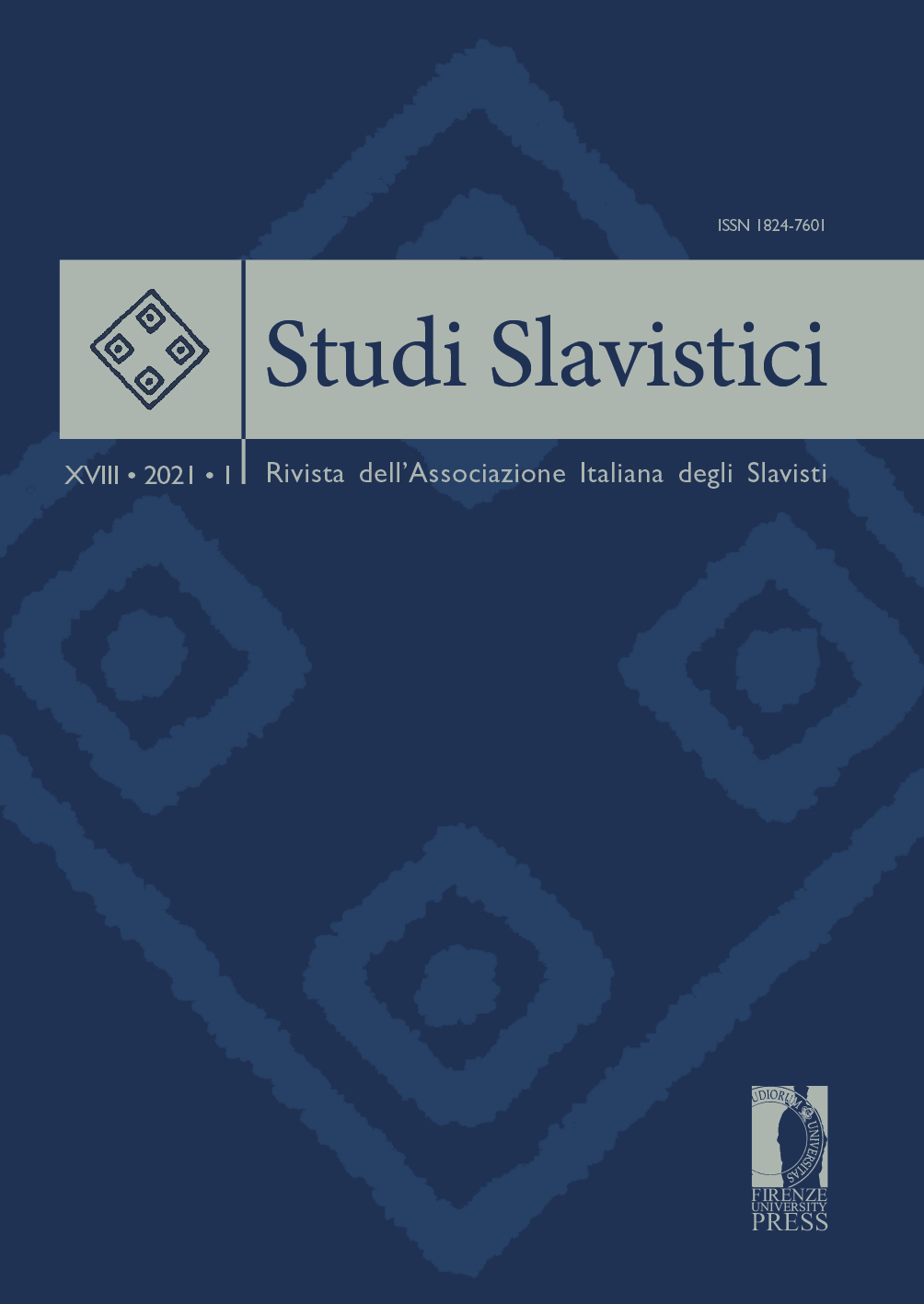The Story of a Literary Forgery: Lev Tolstoj in Florence and the Ecumenical Conference that Never Took Place
Published 2021-07-20
Keywords
- Lev Tolstoj in Italy,
- Lev Tolstoj,
- Giovanni Guidotti,
- The Three Popes,
- The Kingdom of God is Within You
- Religion,
- Christian Church,
- Ecumenism,
- Ecumenical Conference,
- Florence ...More
Abstract
Everything has already been written and said about Lev Nikolaevič Tolstoj. His memoirs open up us for us a window into his personal and private world. Together with his autobiographical works, Tolstoj’s diaries and letters represent almost half of the complete works in 90 volumes. It may, therefore, seem surprising that a trip to Italy around 1891, which in his book Firenze Sacra (1990) Maurilio Adriani refers to for the first time, is mentioned by Tolstoj neither in his diaries nor in his correspondence. In Firenze Sacra, Adriani describes an “extraordinary event” as it unfolded in the context of late nineteenth-century Florence: the inter-confessional meeting Conference of all Christian Churches, held in the autumn of 1891. According to Adriani’s account, among others also Count Lev Tolstoy attended the meeting. Adriani drew this information from the booklet I tre papi, ossia la pace tra le Chiese cristiane, written by Giovanni Guidotti and published in Palermo in 1893. Some later Italian scholars, assuming historical accuracy, reproduced the author’s visit to Italy in their studies on Tolstoj and in the introductory section in the Italian editions of Tolstoj’s works. In this paper, I emphasise that Tolstoj never left the Russian Empire after 1861 and, by analysing archival data, I demonstrate that the 1891 Florence Ecumenical Conference was but the figment of a mathematician’s lively imagination.


